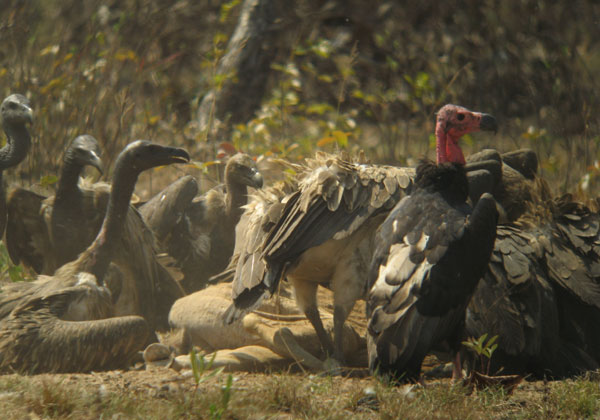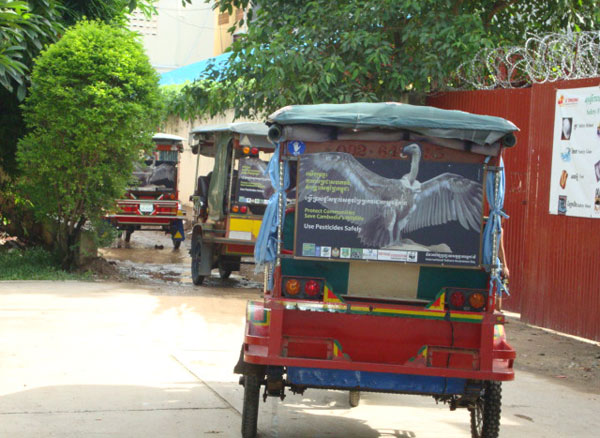
Bucking Trends, Vulture Populations in Cambodia Thriving

Get the world’s most fascinating discoveries delivered straight to your inbox.
You are now subscribed
Your newsletter sign-up was successful
Want to add more newsletters?

Delivered Daily
Daily Newsletter
Sign up for the latest discoveries, groundbreaking research and fascinating breakthroughs that impact you and the wider world direct to your inbox.

Once a week
Life's Little Mysteries
Feed your curiosity with an exclusive mystery every week, solved with science and delivered direct to your inbox before it's seen anywhere else.

Once a week
How It Works
Sign up to our free science & technology newsletter for your weekly fix of fascinating articles, quick quizzes, amazing images, and more

Delivered daily
Space.com Newsletter
Breaking space news, the latest updates on rocket launches, skywatching events and more!

Once a month
Watch This Space
Sign up to our monthly entertainment newsletter to keep up with all our coverage of the latest sci-fi and space movies, tv shows, games and books.

Once a week
Night Sky This Week
Discover this week's must-see night sky events, moon phases, and stunning astrophotos. Sign up for our skywatching newsletter and explore the universe with us!
Join the club
Get full access to premium articles, exclusive features and a growing list of member rewards.
Though most of the vulture populations across Asia are facing extinction, the annual vulture census in Cambodia has shown an increase in the nation's various vulture species.
The Cambodia Vulture Conservation Project the organization that conducts the census found 296 birds of three species at multiple sites across the country. The record count means that Cambodia is home to the only increasing population of vultures in Asia.
The census indicates that the country's population of white-rumped vultures is increasing, while red-headed and slender-billed vultures were found to be stable. All three species are listed as "Critically Endangered" by the World Conservation Union (IUCN).
Conservation efforts by the project include the protection of vulture nests by locals paid for their support, which boosts the chances of nesting success while benefitting the community. In addition, feeding stations supplement vulture food and also give visitors the opportunity to see the birds up close.
"By protecting nests and supplementing food supplies, we are saving some of the world's largest and most charismatic birds," said Hugo Rainey, the Wildlife Conservation Society technical advisor to the Cambodia Vulture Conservation Project. "Nowhere else in Asia do vultures have such a promising future."
Vulture populations in Southeast Asia are threatened by the declining number of large herbivores in the region, but luckily have been mostly unaffected by a threat to the rest of Asia's vultures: the veterinary drug diclofenac. The anti-inflammatory drug, used on cattle, is toxic to vultures, which can die after feeding on these cattle carcasses. It has led to global population declines higher than 99 percent in some vulture species.
While Cambodian vultures may be safe from diclofenac, conservationists in the area are still concerned with the presence of pesticides. Since 2008, more than 20 vultures have died from consuming domestic animals that had been poisoned by the inappropriate use of pesticides
Get the world’s most fascinating discoveries delivered straight to your inbox.
"Cambodia has become a critical source site for vultures, one that we need to protect as a means of saving these ecologically valuable birds," said Joe Walston, director of the Wildlife Conservation Society's Asia Program.
 Live Science Plus
Live Science Plus











